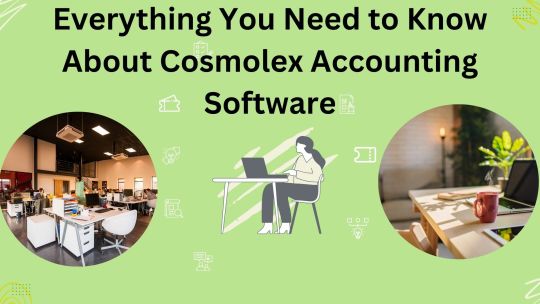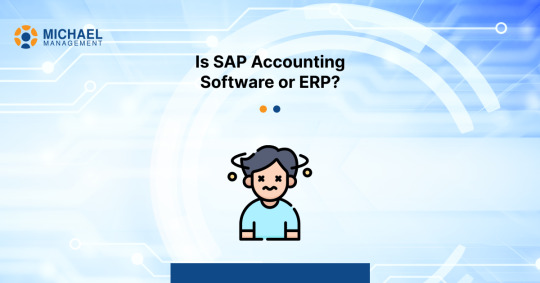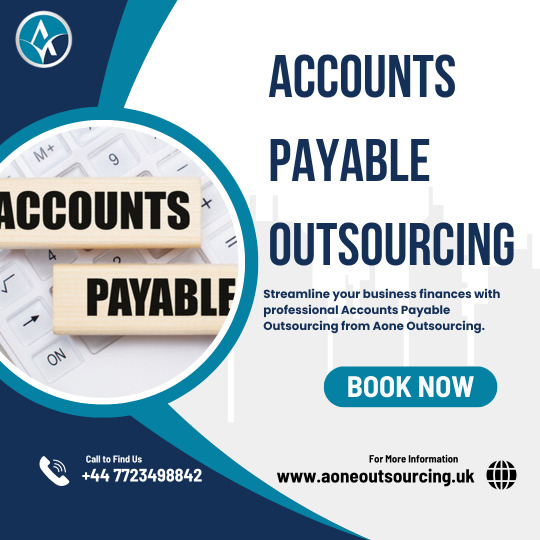#accounts payable integration
Explore tagged Tumblr posts
Text
PathQuest AP Seamlessly Integrates with Leading Accounting Systems

Experience seamless two-way integration with PathQuest AP and your accounting software. Automate invoice coding, sync payments, and optimize your workflow effortlessly. Whether it's QuickBooks, Xero, or Sage Intacct, streamline your vendor bill processing for higher efficiency and focus on value-added tasks. For more information visit us at https://pathquest.com/ap-integration/
#accounts payable integration#ap automation for quickbooks#sage intacct ap integration#xero ap automation
0 notes
Text
Axolt: Modern ERP and Inventory Software Built on Salesforce
Today’s businesses operate in a fast-paced, data-driven environment where efficiency, accuracy, and agility are key to staying competitive. Legacy systems and disconnected software tools can no longer meet the evolving demands of modern enterprises. That’s why companies across industries are turning to Axolt, a next-generation solution offering intelligent inventory software and a full-fledged ERP on Salesforce.
Axolt is a unified, cloud-based ERP system built natively on the Salesforce platform. It provides a modular, scalable framework that allows organizations to manage operations from inventory and logistics to finance, manufacturing, and compliance—all in one place.
Where most ERPs are either too rigid or require costly integrations, Axolt is designed for flexibility. It empowers teams with real-time data, reduces manual work, and improves cross-functional collaboration. With Salesforce as the foundation, users benefit from enterprise-grade security, automation, and mobile access without needing separate platforms for CRM and ERP.
Smarter Inventory Software Inventory is at the heart of operational performance. Poor inventory control can result in stockouts, over-purchasing, and missed opportunities. Axolt’s built-in inventory software addresses these issues by providing real-time visibility into stock levels, warehouse locations, and product movement.
Whether managing serialized products, batches, or kits, the system tracks every item with precision. It supports barcode scanning, lot and serial traceability, expiry tracking, and multi-warehouse inventory—all from a central dashboard.
Unlike traditional inventory tools, Axolt integrates directly with Salesforce CRM. This means your sales and service teams always have accurate availability information, enabling faster order processing and better customer communication.
A Complete Salesforce ERP Axolt isn’t just inventory software—it’s a full Salesforce ERP suite tailored for businesses that want more from their operations. Finance teams can automate billing cycles, reconcile payments, and manage cash flows with built-in modules for accounts receivable and payable. Manufacturing teams can plan production, allocate work orders, and track costs across every stage.
86 notes
·
View notes
Note
Juno, out of curiosity, what does an accountant DO? What does it mean to be one? Because I know there's math involved. I've heard it's very boring. But I don't know anything else and I'm curious because you're very good at putting things to words.
Okay first of all, I cannot express just how excited I got when I first saw this message. There is nothing I love more than talking about things I know about, and usually when my career is mentioned I don't get questions so much as immediate "Oh, bless you" and "I could never"s. Which- totally fair! For some people, accounting would be boring as all hell! But for a multitude of reasons, I adore it.
There are multiple types of accounting. The type most people tend to be more familiar with is that done by CPAs- CPAs, or Certified Public Accountants, are those that have done the lengthy and expensive process to be certified to handle other peoples' tax documents and submit taxes in their name, amongst other things. Yawn, taxes, right? Well, the thing with that is that there's a lot of little loopholes that tax accountants have to remain familiar with, because saving their clients a little more here or getting a little more back there can really add up, and can do a lot for people who, say, have enough money to afford to hire someone to do their taxes but not necessarily enough to be going hog wild with. Public accountants can work for large firms or by themselves, and also do things like preparing financial statements for businesses, auditing businesses to ensure all of their financial transactions are true and accurately reported to shareholders and clients, and consulting on how finances can be managed to maximize profit (money in - money out = profit, in very simple terms).
The type of accounting I do is private accounting! That basically just means that I work for a company in their in-house accounting/finance department. Private accounting tends to get split up into several different areas. My company has Payroll, Accounts Receivable, and Accounts Payable.
Payroll handles everyone's paychecks, PTO, ensuring the correct amount of taxes are withheld from individuals per their desires, and so on. Accounts Receivable handles money flow into the company- so when our company sells the product/service, our Accounts Receivable people are the ones who review the work, create the invoices, send the invoices to the clients, remind clients about overdue invoices, receive incoming payments via ACH (Automatic Clearing House- direct bank-to-bank deposits), Wire (Usually used for international transactions), or Check, and prepare statements that show how much revenue we are expected to gain in a period of time, or have gained in a period of time. This requires a lot of interfacing with clients and project managers.
My department is Accounts Payable. Accounts Payable does basically the other side of the coin from what Accounts Receivable does. We work mostly with vendors and our purchasing/receiving departments. We receive invoices from people and companies that have sold us products/services we need in order to make our own products/perform our services, enter them into our ERP (Enterprise Resource Planning, a system that integrates the departments in a company together- there are many different ERPs, and most people simply refer to their ERP as "the system" when talking internally to other employees of the same company that they work at, because saying the name of the system is redundant) using a set of codes that automatically places the costs into appropriate groups to be referenced for later financial reports, and run the payment processing to ensure that the vendors are being paid.
To break that down because I know that was a lot of words, here's some things I do in my day-to-day at work:
- Reconciliations, making sure two different statements match up: the most common one is Credit Card reconciliations, ensuring that there are appropriately coded entries in the system that match the payments made on our credit line in our bank.
- Invoice entry: this is basic data entry, for the most part. This can have two different forms, though
- Purchase Order Invoice entry: Invoices that are matched both to the service/product provided from the vendor and the purchase order created by our Purchasing/Receiving department. We ensure that the item, the quantity, and the price all match between our records, the purchase order, and the invoice, before we enter this.
- Hard Coded Invoice entry: Invoices that we enter manually due to there being no Purchase Order for them. This is often recurring services, like cleaning or repairs, that may happen too often or have prices vary too much for Purchase Orders to be practical.
- Cleaning up old purchase orders: sometimes Purchase Orders are put in the system and then never fulfilled. Because this shows on financial statements as being a long-standing open commitment, it looks bad, so we have to periodically research these and find out if the vendor simply didn't send us the invoice, if the order was cancelled, or if something else is going on.
- Forensics! This is my personal favorite part of the job, where someone has massively borked something that is affecting my work, and so I go dig into it, sometimes going back as four or five years in records to find the origin point of the first mistake, and untangling the threads of what happened following that mistake to get us to where we are today. There's an entire field called Forensic Accounting that is basically just doing This but for other companies (it's a subset of auditing, and often is done via the IRS) and that's my dream position to be totally honest. I loooove the dopamine hit i get with solving the mystery and getting praised for doing so faster than anyone else has even begun to realize the problem to start with.
- Balancing Credits/Debits: This is more of a Main Accountant role thing, but the long and short of it is that every business has Assets, Liabilities, and Equity. Liabilities and Equity are what we put into the company/what we owe, and assets are what we have received/what we are owed. Anything that increases Assets or lowers Liabilities or Equity is a Debit. Anything that decreases Assets or raises Liabilities or Equity is a Credit. Every monetary change we process has to include an equal Debit and Credit. This is its own whole lecture, so if you wanna know more about double-entry accounting, let me know, but it's yawnsville for most people.
- Actually cutting checks or initiating bank payments to vendors for amounts we owe them.
- Vendor communication: I'm on the phones and email a lot with vendors who are wondering where their payment is, or why something was short-paid, or if I can change some of their info in our system, and so on and so on. Every job is customer service, unfortunately. I don't love it, but I do a lot less of it in private accounting than I would have to do in public accounting.
- Spreadsheets: I make so many spreadsheets I am a goddamn Excel wizard. I love spreadsheets. This isn't necessarily accounting-specific though, most people in Finance jobs love spreadsheets, or at least use them to make their lives easier. I make them just for fun, because I'm a giant fucking nerd who finds that kind of thing enjoyable lol. So if you ever need a spreadsheet made for anything, hit me up.
As for math, that's a pretty common misconception. While there is math, it is very rarely more complicated than "I paid $3 of the $8 I owe, now I owe $5" for me. There are some formulas you learn in school (Business Administration with a focus in Accounting is what I studied), but they're also pretty standard and rarely include more than like... basic algebra. Which. Thanks @ god because I flunked so hard out of pre-calc in college. I could not have done accounting if it really were all that math heavy.
Aaaand yeah! That's all I've got off the top of my head- if you have any more questions about it, do let me know, I'm happy to ramble on for hours, but I'm cutting it here so I don't start meandering on without direction lol.
45 notes
·
View notes
Text
This is my reread of the Lockwood and Co. Books, organized by @blue-boxes-magic-and-tea, I'll make a general summary of several chapters and then post bits and pieces that jumped out at me.
Part II, Chapters 7-8:
35 Portland Row is such a perfect home base. An urban Hobbit Hole. Magician’s nephew townhouse. Familiar and homey, yet exiting and unusual. Just the right amount of familiar and unfamiliar things that would appeal to a kid. The tantalizing fantasy of independence mixed with the fear of the outside world that the young target audience first starts to comprehend at that age. The dream of living with your crush and all your friends, eating donuts for breakfast, staying up to all hours of the night, being dashing, running things, having swords, being better at something than the adults who are an arbitrary force you put on a façade and appease and try to get rid of as soon as possible. Your challenge being comprehending mortality, coming to terms that death is a part of life and can happen to anyone around you, even your most loved ones. And your enemy being corrupt adults who run corporations that already traded your future, all your hopes and dreams, all your potential for just a bit more money, prestige, life they desire. It says something that a book for a modern teenager is one about kids just trying to survive in a world adults ruined and how difficult it is to keep a place of your own and your integrity safe and in one piece.
Miscellaneous:

It's sweet that Lockwood sees Portland Row as being not just "his" but belonging to anyone who is part of the agency. This is his home, legally he is the sole owner of it, but he views the house as Lucy's and George's in equal measure because they are part of Lockwood and Co. He opens his home to people not in the manner of a landlord (we don't really ever find out if he charges Geroge or Lucy any rent, I suspect he doesn't although informally they all probably pitch in on maintenance). What I love about Lockwood is he's such a paradox, he's extremely inviting and yet intensely closed off. He both opens his home to friends and craves a family and is also deeply emotionally stunted and detached.

George has lived with Lockwood for only maybe a year or so and the agency has only been registered three months and yet he gives off such intense "Elizabeth from Accounts Payable whose been with the company for twenty years and has weathered every kind of bullshit and is counting down to retirement" vibes like, Sir, how do you sound so 50 at 15?

Lockwood is so funny because one moment he's actually being a good boss and agency head – conducting good interviews, watching for emotional responses, making background checks on potential hires, giving a tour to new employee where he firmly but politely draws boundaries - and then the next moment he's absolutely peacocking to a cute girl like "look, look, I'm also powerful and a big deal!"
I also think it's funny that Lockwood strikes out with Lucy a lot more from the beginning then we realize. Lucy is traumatized, emotionally immature and has not been socialized properly. Her self-confidence has been worn away by her "prettiness is not your job" mother and having to be the breadwinner for her family so early in life. There are these moments early on where someone more adept at flirting would have picked up on Lockwood being a showoff and maybe played with it, but bless her she's 13 going on 14 here, literally no one can flirt at that age so she's just incapable of seeing what is going on or give it any time of day. It's no wonder that it takes them literal years to get anywhere.
Also, who let Lockwood keep that watch? no one right? He stole it. He told the cops there's a shitload of death glows in a garden and they probably brought him along to raid the home of a serial killer to help look evidence or whatever and there was a watch lying around and Lockwood was like “ooooooh for my murder scrapbook!” and swiped it.


The mention of an uncle early on is such a clever thing because it’s relevant to the plot during the interview to show how sensitive Lucy really is, but it’s also a red herring. When George mentions Lockwood losing his parents young and him being “in care” of some relative, the reader immediately thinks "ah yes, that must have been that nice uncle!" It lets us assume that whatever mystery there is about the room it must be about his parents. It's why the reveal at the end of Whispering Skull is such a surprise and shows just how little we know about him.

Yea she's gone.
It took less than a week for her to go from describing Lockwood as looking like "a priest on a toilet" to this teenage horniness. My disaster crush in Gr.7 had about the same trajectory. Also reminds me of Mei's completely realistically portrayed crush on Some Convenience Store Guy in "Turning Red". Flips on like a switch and before you know it, you're doodling the most mortifying thing ever conceived my man. 13 is such a cursed age, my god.

I’ve mentioned this before in a post, but Lucy lashes out at people for things she hates about herself. Her internal gripes about Geroge are not that he’s rude (even though he definitely is to her) she’s not mean about him being objectively less Talented then her, she’s never makes fun of him for being smarter or better educated than she is. Lucy can handle outright hostility pretty well and she’s not self-conscious about her talent or lack of education. But she is, I think, deeply insecure about her appearance. And like so many girls her age it’s the chink in her armor she knows to hide and wallpaper over with dismissal and disdain. She pretends she doesn’t care but she does, and the more her feelings for Lockwood grow the more it shows in how she talks about herself and how she talks about others.

Sometimes you’re reading a book and oooh there’s a romance subplot and A falls for B (often instead of C or D) and you think … but why? why is A in love with B actually? What is it about them that makes the attraction click? But with Lucy it’s so obvious why she is almost immediately taken with Lockwood, but also why she doesn’t realize it. From Lucy’s POV, for all his flaws Lockwood is the opposite of what Jacobs was. He enters with the teams and he’s the last to leave (he even jumps out the burning building last). She doesn’t feel alone and unsupported. He takes accountability for any error on the case, easily and without any shifting of blame. Sure he’s vainglorious and a bit irresponsible and impulsive and all that. He’s 14-15 at most - that’s normal enough and she’s a kid like him, she gets it. But Lockwood is also a kid burdened with a lot of responsibly and I think Lucy is in a unique position to appreciate this and admire him for taking it on as he does. And that admiration neatly tricks her into thinking that’s all there is to her feelings for a long, long time because she can’t tell her feels apart worth a damn.
I’m going to start a Lucy describes Lockwood’s smile count: 6
32 notes
·
View notes
Text
Online Bookkeeping Services by Mercurius & Associates LLP

In today’s fast-paced digital economy, accurate and efficient financial management is crucial for every business. Whether you're a startup, small enterprise, or a growing company, keeping track of your finances is vital for sustainability and success. That’s where Mercurius & Associates LLP steps in with its online bookkeeping services — blending technology, expertise, and reliability to manage your books with precision.
Why Bookkeeping Matters
Bookkeeping is the foundation of any business’s financial health. It involves recording, classifying, and organizing all financial transactions so that businesses can:
Monitor their financial position
Ensure regulatory compliance
Make informed decisions
File accurate tax returns
Plan for growth and investment
Yet, many businesses struggle to keep up with bookkeeping due to time constraints, lack of in-house expertise, or outdated processes.
Benefits of Online Bookkeeping Services
Online bookkeeping is a game-changer for modern businesses. It offers:
Real-time access to financial data
Cloud-based solutions for anytime, anywhere access
Cost-effective services compared to in-house staff
Scalability as your business grows
Increased accuracy through automated tools
Secure data storage with regular backups
By outsourcing bookkeeping to professionals, businesses can focus more on core operations while ensuring their books are in order.
Why Choose Mercurius & Associates LLP?
At Mercurius & Associates LLP, we specialize in providing online bookkeeping services tailored to your business needs. Here’s what sets us apart:
1. Experienced Professionals
Our team comprises skilled accountants and finance experts who understand the nuances of bookkeeping across industries. We ensure compliance with Indian and international accounting standards.
2. Customized Solutions
We understand that no two businesses are the same. Our bookkeeping services are tailored to suit your industry, size, and specific requirements.
3. Technology-Driven Approach
We leverage cloud-based platforms like QuickBooks, Zoho Books, Xero, and Tally for seamless and accurate bookkeeping. Integration with your existing systems is quick and hassle-free.
4. Transparent Reporting
You receive regular financial reports that help you track performance, manage cash flow, and plan strategically. Our detailed reports include profit and loss statements, balance sheets, and cash flow summaries.
5. Data Security
We implement best-in-class data protection protocols to ensure your financial information is secure and confidential.
Services We Offer
Daily, weekly, or monthly transaction recording
Bank and credit card reconciliation
Accounts payable and receivable management
General ledger maintenance
Payroll processing support
GST return preparation and filing
Financial reporting and analysis
Industries We Serve
Our online bookkeeping services are ideal for:
Startups & Entrepreneurs
E-commerce Businesses
Healthcare Professionals
Legal Firms
Retail & Wholesale Businesses
IT & Software Companies
NGOs and Trusts
Get Started with Mercurius & Associates LLP
Outsourcing your bookkeeping doesn’t mean losing control. With Mercurius & Associates LLP, you gain a partner who brings clarity, accuracy, and efficiency to your financial operations.
Let us handle your books while you focus on growing your business.
📞 Contact us today to learn more about our online bookkeeping services or to request a free consultation.
#accounting & bookkeeping services in india#audit#businessregistration#chartered accountant#income tax#taxation#foreign companies registration in india#auditor#ap management services
2 notes
·
View notes
Text
Everything You Need to Know About Cosmolex Accounting Software

In today’s fast-paced business world, having the right accounting software is essential for smooth financial management. CosmoLex has emerged as a leading choice for businesses, particularly in the legal and professional services industries, offering comprehensive accounting solutions tailored to specific needs.
This guide will explore why CosmoLex stands out as the best accounting software, detailing its features, benefits, and unique selling points. We will also address common questions to help you understand if CosmoLex is the right tool for your business.
What is CosmoLex?
CosmoLex is a cloud-based accounting software solution designed with professionals in mind, especially those in the legal industry, such as law firms and solo practitioners. With an all-in-one platform, CosmoLex combines essential accounting functions with specialized features that cater to the unique needs of legal professionals. Unlike traditional accounting software, CosmoLex streamlines financial management while also addressing compliance and trust accounting requirements.
With features that extend beyond basic bookkeeping, CosmoLex helps firms manage time tracking, billing, client management, and compliance, all in one integrated system. The software's easy-to-use interface and powerful functionality have made it a go-to solution for professionals looking for efficiency and accuracy in their financial operations.
Key Features of CosmoLex
1. Trust Accounting Compliance
One of CosmoLex’s standout features is its trust accounting capabilities, specifically designed to meet the strict regulations of the legal industry. Trust accounts require meticulous record-keeping to ensure that client funds are handled appropriately. CosmoLex automates the process of tracking client trust balances, generating trust account reconciliations, and ensuring compliance with local bar association rules.
2. Integrated Time Tracking and Billing
CosmoLex combines time tracking and billing into one seamless process, making it easy for law firms to log billable hours and create invoices directly from the platform. This feature helps streamline the billing process, improves accuracy, and ensures that no billable time goes unaccounted for. Whether you need to track time spent on client meetings or specific case tasks, CosmoLex offers a user-friendly interface that simplifies time tracking and invoicing.
3. Comprehensive Financial Management
Beyond its specialized tools, CosmoLex provides full-service accounting capabilities, including accounts payable/receivable management, general ledger, and financial reporting. It allows businesses to manage their financial data accurately, create financial statements, and generate customizable reports that provide insights into their financial health.
4. Automated Bank Reconciliation
CosmoLex automates the process of bank reconciliation, which is crucial for maintaining accurate financial records. By connecting your bank accounting software, transactions are automatically imported, matched, and reconciled. This reduces the manual effort needed for reconciliation and minimizes the risk of human error.
5. Client and Matter Management
CosmoLex offers integrated client and matter management tools that allow you to organize client files, manage documents, and maintain case notes within the same system. This helps legal professionals keep track of all case-related information in one place, ensuring that critical documents are easily accessible when needed.
6. Billing Customization and Payment Processing
The software supports customizable invoice templates and allows you to set payment terms and accept online payments through integrated payment gateways. This feature not only streamlines the billing process but also provides clients with convenient payment options, thereby improving cash flow for the business.
7. Compliance and Security
CosmoLex prioritizes data security with encryption, secure cloud storage, and multi-factor authentication. Compliance is also a key focus, especially for law firms that must adhere to various legal and financial regulations. The platform ensures that all data is protected and compliant with the necessary guidelines for trust accounting.
Benefits of Using CosmoLex
1. All-in-One Solution
One of the major advantages of CosmoLex is that it combines various essential tools into a single platform. This eliminates the need for separate software solutions for accounting, time tracking, billing, and client management, streamlining workflow and reducing administrative overhead.
2. Enhanced Efficiency
CosmoLex’s user-friendly design and automated features help businesses save time on routine tasks. The time tracking, billing, and reconciliation automation allow professionals to focus on their core activities rather than spend valuable time on manual bookkeeping.
3. Accurate and Transparent Reporting
With real-time financial reporting capabilities, CosmoLex helps businesses keep a clear picture of their financial status. Customized financial reports can be generated for better insights, aiding in more informed decision-making and strategic planning.
4. Improved Cash Flow
By enabling easy online payment processing and accurate invoicing, CosmoLex helps businesses improve their cash flow. Clients can pay invoices directly through integrated payment gateways, which helps speed up the collection process.
5. Legal-Specific Features
CosmoLex is specifically designed for legal professionals, so it includes features that cater to the needs of law firms that other generic accounting software might not offer. This includes trust accounting compliance, case management, and billing features tailored for legal services.
How Does CosmoLex Compare to Other Accounting Software?
1. CosmoLex vs. QuickBooks
QuickBooks is one of the most widely used accounting platforms for small to medium-sized businesses. While it offers strong accounting capabilities, it does not provide specialized features tailored for legal professionals, such as trust accounting compliance and integrated client matter management. CosmoLex excels in this area by combining industry-specific tools with general accounting features.
2. CosmoLex vs. Clio
Clio is a popular practice management software for law firms that includes billing, case management, and document storage. However, while Clio does provide some financial features, it lacks full-service accounting capabilities such as automated bank reconciliation and comprehensive financial reporting that CosmoLex offers. CosmoLex integrates these features into one platform, making it an all-in-one solution.
3. CosmoLex vs. Xero
Xero is a well-known accounting software designed for a broad range of businesses. While it offers great financial management tools, it lacks the legal-specific features that CosmoLex has, such as trust accounting compliance and client matter management. For law firms needing specialized accounting and practice management, CosmoLex is the more comprehensive option.
Pros and Cons of Using CosmoLex
Pros:
All-in-One Platform: Combines accounting, time tracking, and client management.
Trust Accounting Compliance: Ideal for law firms that need to manage client trust accounts.
User-Friendly Interface: Easy to navigate, even for those without an accounting background.
Seamless Integration: Works well with payment gateways and other third-party tools.
Automated Features: Time-saving automation for bank reconciliation, billing, and reporting.
Cons:
Cost: CosmoLex can be more expensive compared to simpler, non-specialized accounting software.
Learning Curve: While the interface is user-friendly, new users may still need time to familiarize themselves with all the features.
Not Ideal for Non-Legal Firms: The software is best suited for law firms and may not provide enough value for businesses in other industries.
Final Thoughts
CosmoLex has established itself as one of the best accounting software solutions for legal professionals due to its comprehensive, all-in-one approach. From trust accounting compliance to integrated time tracking and billing, CosmoLex provides the tools needed to manage the financial and operational aspects of a law firm effectively. While it may come at a higher cost compared to simpler accounting software, its specialized features and time-saving automation make it a worthwhile investment for law firms and professional service providers. By choosing CosmoLex, businesses can enhance efficiency, ensure compliance, and focus on delivering excellent services to their clients.
FAQs
What Industries Benefit the most from CosmoLex?
CosmoLex is designed primarily for legal professionals and firms. It is best suited for law firms, solo practitioners, and accounting firms that handle legal trust accounting and billing.
How does CosmoLex Handle Data Security?
CosmoLex employs strong data security measures such as encryption, cloud storage, and multi-factor authentication to protect user data and ensure compliance with industry regulations.
Can I try CosmoLex before Purchasing?
Yes, CosmoLex offers a free trial for potential customers to test out the platform and determine if it fits their business needs.
Does CosmoLex Integrate with other Software?
CosmoLex integrates with popular tools and platforms like Xero, QuickBooks, and payment gateways, ensuring a seamless workflow for users who may need to use additional software for their operations.
Is CosmoLex Suitable for Solo Practitioners?
Yes, #CosmoLex is an excellent choice for solo practitioners who need a comprehensive accounting and practice management solution. Its user-friendly design and specialized features make it ideal for professionals who manage their own practices.
2 notes
·
View notes
Text
With Innrly | Streamline Your Hospitality Operations

Manage all your hotels from anywhere | Transformation without transition
Managing a hotel or a multi-brand portfolio can be overwhelming, especially when juggling multiple systems, reports, and data sources. INNRLY, a cutting-edge hotel management software, revolutionizes the way hospitality businesses operate by delivering intelligent insights and simplifying workflows—all without the need for system changes or upgrades. Designed for seamless integration and powerful automation, INNRLY empowers hotel owners and managers to make data-driven decisions and enhance operational efficiency.
Revolutionizing Hotel Management
In the fast-paced world of hospitality, efficiency is the cornerstone of success. INNRLY’s cloud-based platform offers a brand-neutral, user-friendly interface that consolidates critical business data across all your properties. Whether you manage a single boutique hotel or a portfolio of properties spanning different regions, INNRLY provides an all-in-one solution for optimizing performance and boosting productivity.
One Dashboard for All Your Properties:
Say goodbye to fragmented data and manual processes. INNRLY enables you to monitor your entire portfolio from a single dashboard, providing instant access to key metrics like revenue, occupancy, labor costs, and guest satisfaction. With this unified view, hotel managers can make informed decisions in real time.
Customizable and Scalable Solutions:
No two hospitality businesses are alike, and INNRLY understands that. Its customizable features adapt to your unique needs, whether you're running a small chain or managing an extensive enterprise. INNRLY grows with your business, ensuring that your operations remain efficient and effective.
Seamless Integration for Effortless Operations:
One of INNRLY’s standout features is its ability to integrate seamlessly with your existing systems. Whether it's your property management system (PMS), accounting software, payroll/labor management tools, or even guest feedback platforms, INNRLY pulls data together effortlessly, eliminating the need for system overhauls.
Automated Night Audits:
Tired of labor-intensive night audits? INNRLY’s Night Audit+ automates this crucial process, providing detailed reports that are automatically synced with your accounting software. It identifies issues such as declined credit cards or high balances, ensuring no problem goes unnoticed.
A/R and A/P Optimization:
Streamline your accounts receivable (A/R) and accounts payable (A/P) processes to improve cash flow and avoid costly mistakes. INNRLY’s automation reduces manual entry, speeding up credit cycles and ensuring accurate payments.
Labor and Cost Management:
With INNRLY, you can pinpoint inefficiencies, monitor labor hours, and reduce costs. Detailed insights into overtime risks, housekeeping minutes per room (MPR), and other labor metrics help you manage staff productivity effectively.
Empowering Data-Driven Decisions:
INNRLY simplifies decision-making by surfacing actionable insights through its robust reporting and analytics tools.
Comprehensive Reporting:
Access reports on your schedule, from detailed night audit summaries to trial balances and franchise billing reconciliations. Consolidated data across multiple properties allows for easy performance comparisons and trend analysis.
Benchmarking for Success:
Compare your properties' performance against industry standards or other hotels in your portfolio. Metrics such as ADR (Average Daily Rate), RevPAR (Revenue Per Available Room), and occupancy rates are presented in an easy-to-understand format, empowering you to identify strengths and areas for improvement.
Guest Satisfaction Insights:
INNRLY compiles guest feedback and satisfaction scores, enabling you to take prompt action to enhance the guest experience. Happy guests lead to better reviews and increased bookings, driving long-term success.

Key Benefits of INNRLY
Single Login, Full Control: Manage all properties with one login, saving time and reducing complexity.
Error-Free Automation: Eliminate manual data entry, reducing errors and increasing productivity.
Cost Savings: Pinpoint problem areas to reduce labor costs and optimize spending.
Enhanced Accountability: Hold each property accountable for issues flagged by INNRLY’s tools, supported by an optional Cash Flow Protection Team at the enterprise level.
Data Security: Protect your credentials and data while maintaining your existing systems.
Transforming Hospitality Without Transition
INNRLY’s philosophy is simple: transformation without transition. You don’t need to replace or upgrade your existing systems to benefit from INNRLY. The software integrates effortlessly into your current setup, allowing you to focus on what matters most—delivering exceptional guest experiences and achieving your business goals.
Who Can Benefit from INNRLY?
Hotel Owners:
For owners managing multiple properties, INNRLY offers a centralized platform to monitor performance, identify inefficiencies, and maximize profitability.
General Managers:
Simplify day-to-day operations with automated processes and real-time insights, freeing up time to focus on strategic initiatives.
Accounting Teams:
INNRLY ensures accurate financial reporting by syncing data across systems, reducing errors, and streamlining reconciliation processes.
Multi-Brand Portfolios:
For operators managing properties across different brands, INNRLY’s brand-neutral platform consolidates data, making it easy to compare and optimize performance.
Contact INNRLY Today

Ready to revolutionize your hotel management? Join the growing number of hospitality businesses transforming their operations with INNRLY.
Website: www.innrly.com
Email: [email protected]
Phone: 833-311-0777
#Innrly#Innrly Hotel Management Software#Bank Integrations in Hospitality Software#Tracking Hotel Compliance#hotel performance software#hotel portfolio software#Hotel Performance Management Software#hotel reconciliation software#Hotel Data Entry Software#accounting software hotels#hotel banking software#hospitality automated accounting software#hotel automation software hotel bookkeeping software#back office hotel accounting software#hospitality back office software#accounting hospitality software#Hotel Management Accounting Software#Hotel Accounting Software#Hospitality Accounting Software#Accounting Software for Hotels#Hotel Budgeting Software#Automate Night Audit Software#Automate Night Audit Process#Best Hotel Accounting Software#Best Accounting Software For Hotels#Financial & Hotel Accounting Software#Hospitality Accounting Solutions
2 notes
·
View notes
Text
Maximize Efficiency with Expert Cash Management Solutions
In today’s fast-paced business environment, effective cash management is crucial for maintaining financial stability and supporting growth. Expert cash management solutions can help businesses streamline their operations, optimize liquidity, and enhance overall financial efficiency. This article explores how leveraging advanced cash management solutions can maximize efficiency and drive business success.
What is Cash Management?
Cash management involves the collection, handling, and use of cash in a business. The goal is to ensure that a company has enough cash on hand to meet its short-term obligations while optimizing the use of its funds. Effective cash management helps businesses avoid liquidity problems, reduce financing costs, and invest surplus cash wisely.
Key Benefits of Expert Cash Management Solutions
Improved Cash Flow Visibility
Expert cash management solutions provide real-time insights into cash flow. By integrating these solutions with your financial systems, you can gain a comprehensive view of your cash position, including incoming and outgoing funds. This visibility allows for better forecasting and planning, helping you anticipate cash needs and avoid potential shortfalls.
Enhanced Liquidity Management
Managing liquidity effectively is essential for ensuring that your business can meet its obligations without holding excessive cash. Advanced cash management tools help optimize liquidity by analyzing cash flow patterns and recommending strategies to manage working capital more efficiently. This includes managing accounts receivable and payable, optimizing cash reserves, and reducing idle cash.
Streamlined Cash Collection and Disbursement
Automated cash management solutions streamline the collection and disbursement processes. For example, electronic invoicing and payment systems can accelerate the receipt of payments, reducing the time it takes to convert receivables into cash. Similarly, automated disbursement systems help manage outgoing payments, ensuring that bills and payroll are processed efficiently and on time.
Enhanced Fraud Prevention and Security
Security is a critical aspect of cash management. Expert solutions offer robust security features to protect against fraud and unauthorized transactions. This includes encryption, multi-factor authentication, and transaction monitoring. By implementing these security measures, businesses can safeguard their cash and reduce the risk of financial losses due to fraud.
Optimized Investment Opportunities
Efficient cash management doesn’t just involve managing daily transactions; it also includes investing surplus cash to generate returns. Expert cash management solutions help identify and evaluate investment opportunities that align with your company’s risk tolerance and financial goals. Whether it’s investing in short-term instruments or managing liquidity portfolios, these solutions provide insights to make informed investment decisions.
Regulatory Compliance
Adhering to regulatory requirements is essential for avoiding penalties and maintaining financial integrity. Advanced cash management systems help ensure compliance with relevant regulations by automating reporting and record-keeping. This includes managing tax-related cash flows, regulatory filings, and maintaining accurate financial records.
Implementing Expert Cash Management Solutions
To maximize efficiency with expert cash management solutions, consider the following steps:
Assess Your Needs
Begin by evaluating your business’s cash management needs. Identify areas where improvements are needed, such as cash flow forecasting, liquidity management, or fraud prevention. This assessment will help you choose the right solutions that align with your business objectives.
Choose the Right Tools
Select cash management solutions that offer the features and functionality you need. Look for tools that integrate with your existing financial systems, provide real-time insights, and offer robust security measures. Consider solutions that are scalable and can grow with your business.
Implement and Integrate
Once you’ve selected the appropriate solutions, implement them within your organization. This may involve integrating the solutions with your current financial systems, training staff on how to use the tools, and establishing processes for managing cash flow effectively.
Monitor and Optimize
Regularly monitor the performance of your cash management solutions to ensure they are delivering the expected benefits. Use the insights provided by these tools to make data-driven decisions, optimize cash flow, and adjust your strategies as needed.
Review and Adjust
Periodically review your cash management practices and solutions to ensure they remain effective. As your business evolves, your cash management needs may change, requiring adjustments to your strategies and tools.
Conclusion
Expert cash management solutions are essential for maximizing efficiency and achieving financial stability in today’s competitive business landscape. By leveraging advanced tools and strategies, businesses can gain better visibility into their cash flow, optimize liquidity, streamline processes, and enhance security. Implementing these solutions helps ensure that your business can meet its financial obligations, invest wisely, and maintain a strong financial position. Embracing expert cash management practices not only improves day-to-day operations but also supports long-term growth and success.
For more details, visit us:
expense tracker software
Expense Management Software
invoice management system
best expense reimbursement software
3 notes
·
View notes
Text
Melio is a financial technology platform designed to streamline accounts payable and receivable processes for small and medium-sized businesses. It aims to simplify bill payments, improve cash flow management, and enhance overall financial operations. Here is a detailed review of its features and functionalities:
Key Features
Bill Payments:
Multiple Payment Methods: Melio allows businesses to pay vendors using ACH bank transfers, credit cards, or checks. This flexibility helps businesses manage cash flow and earn credit card rewards, even if the vendor only accepts checks. Schedule Payments: Users can schedule payments in advance, ensuring timely bill payments and avoiding late fees. Batch Payments: The platform supports batch payments, allowing users to pay multiple bills at once, saving time and reducing administrative burden.
Accounts Receivable:
Payment Requests: Businesses can send payment requests to customers via email, including a link for customers to pay directly through the platform.
Customer Management: Track customer payments, manage outstanding invoices, and automate reminders to improve collection rates.
Integration and Syncing:
Accounting Software Integration: Melio integrates with popular accounting software like QuickBooks, Xero, and FreshBooks, ensuring seamless data synchronization and reducing manual data entry.
Bank Integration: Direct integration with banks facilitates easy payment processing and reconciliation. User-Friendly Interface:
Dashboard: A clean and intuitive dashboard provides an overview of pending and completed payments, cash flow status, and upcoming bills.
Mobile Access: The platform is accessible via mobile devices, allowing users to manage payments and view financial data on the go.
Security and Compliance:
Secure Transactions: Melio employs robust security measures, including encryption and secure data storage, to protect user information and financial transactions.
Compliance: The platform adheres to financial regulations and industry standards, ensuring compliance with relevant laws.
Cash Flow Management:
Flexible Payment Options: By allowing credit card payments for bills, Melio helps businesses manage cash flow more effectively, providing the flexibility to defer payments while still meeting obligations.
Payment Scheduling: Advanced scheduling options enable better planning and control over outgoing cash flow.
Collaboration Tools:
Team Access: Multiple users can be granted access to the platform, allowing for collaborative financial management. Permission settings ensure that sensitive information is accessible only to authorized personnel.
Audit Trail: Detailed records of all transactions and activities help maintain transparency and accountability.
Pros Flexibility in Payments: The ability to pay bills via credit card, even when vendors don’t accept them, provides a unique advantage in managing cash flow and earning rewards. Ease of Use: The platform’s user-friendly interface and straightforward setup make it accessible for businesses of all sizes.
Integration with Accounting Software: Seamless integration with major accounting tools ensures accurate financial tracking and reduces manual workload.
Security: Strong security measures and compliance with industry standards provide peace of mind for users.
Batch Payments: Support for batch payments simplifies the process of paying multiple bills, saving time and reducing errors.
Cons Cost: While Melio offers a free version, certain advanced features and payment methods (like credit card payments) incur fees, which might be a consideration for cost-sensitive businesses. Limited Global Reach: Melio primarily serves businesses in the United States, which may limit its usefulness for companies with significant international operations or those based outside the U.S. Learning Curve for Advanced Features: Some users might find the advanced features complex initially, requiring time to fully utilize all functionalities.
Melio is a powerful and flexible tool for small and medium-sized businesses looking to streamline their accounts payable and receivable processes. Its ability to manage payments through various methods, integration with popular accounting software, and user-friendly design make it an attractive option for businesses aiming to enhance their financial operations. While there are costs associated with some features and a learning curve for advanced functionalities, the overall benefits, including improved cash flow management and operational efficiency, make Melio a valuable tool for modern businesses.
4 notes
·
View notes
Text
Is SAP Accounting Software or ERP?

SAP is not just accounting software but a comprehensive Enterprise Resource Planning (ERP) solution. While SAP does include accounting functionalities, it goes beyond that by integrating various business processes such as sales, production, inventory, and human resources. SAP's ERP software allows organizations to improve efficiency and gain valuable insights into their business performance.
For more details, visit: https://www.michaelmanagement.com/browse/sap-erp/financials/accounts-receivable-payable
2 notes
·
View notes
Text
Enhancing Manufacturing Excellence: 6 Key Benefits of SAP Business One
Staying ahead of the competition requires more than just producing high-quality products. It demands efficient operations, streamlined supply chains, and real-time decision-making capabilities. This is where SAP Business One, a robust Enterprise Resource Planning (ERP) solution, steps in to transform the manufacturing sector. In this blog, we will explore six significant benefits that SAP Business One brings to manufacturers of all sizes, from small businesses to mid-sized enterprises.

Better Visibility
One of the primary challenges in manufacturing is maintaining visibility into the complex web of supply chains, operations, and inventory resources. SAP manufacturing software addresses this challenge by providing enhanced visibility through seamless integration with shipping logistics and supply chains. This integration empowers manufacturers with real-time data, enabling them to make well-informed decisions promptly.
Furthermore, the platform offers customized and interactive dashboards that offer a 360-degree view of the entire manufacturing process. This flexibility in analysis and insights allows manufacturers to adapt swiftly to changing customer demands and meet stringent deadlines.
Improved Productivity
SAP manufacturing software incorporates Material Requirements Planning (MRP) functionality, which replaces outdated production scheduling methods with a structured, multilevel production process. MRP also facilitates resource planning for machine maintenance, leading to overall productivity improvements.
Additionally, the MRP wizard streamlines material procurement and production planning, significantly reducing pre-production lead times. This efficiency boost directly contributes to enhanced productivity and better resource utilization.
Cost Control
Cost control is a paramount concern for manufacturing companies. SAP manufacturing software offers a solution by optimizing daily operations, reducing waste, and simplifying processes. Informed decision-making, enabled by SAP manufacturing software, aids in identifying cost-saving opportunities and increasing overall business profitability.
Working Capital Management
Managing working capital is essential for the day-to-day operations of manufacturing companies. SAP manufacturing software offers a comprehensive suite of modules and capabilities that help in managing working capital effectively. This includes overseeing accounts receivables, accounts payables, cash flow, liquidity, and inventory planning.
Customized purchasing reports provide real-time insights into working capital challenges, replacing the traditional year-end or month-end reports. This level of control from SAP services allows manufacturers to make proactive decisions, ensuring the stability of their operations.
Inventory Management
Effective inventory management is critical for manufacturing success. SAP Business One equips manufacturers with advanced warehouse tracking features and real-time stock reports. These features help document stock levels and monitor stock transfers between warehouses, ensuring a lean inventory management approach.
The ERP solution strikes an ideal balance between inventory stock and production capacities, facilitating on-time product deliveries, efficient inventory cost management, and meeting customer demands effectively.
Regulatory Compliance
Manufacturers must adhere to industry regulations at every stage of the manufacturing process, from procurement to final product delivery. SAP Business One plays a crucial role in improving regulatory compliance by integrating these standards into its operations seamlessly.
Furthermore, the platform empowers manufacturers to embed quality control into their manufacturing processes, providing insights into vendor performance and enhancing customer satisfaction.
Conclusion
SAP system emerges as a powerful ally, offering a wide array of benefits to manufacturers. From improved visibility and productivity to cost control, working capital management, inventory optimization, and regulatory compliance, this ERP solution empowers manufacturing companies to thrive in a competitive environment. By embracing SAP Business One, manufacturers can embark on a journey toward excellence, ensuring they meet customer demands efficiently and maintain a strong position in the market.
2 notes
·
View notes
Text
What is Quick Payable?
Quick Payable is a user-friendly application available on Salesforce's app exchange platform. It is designed to simplify and streamline the accounts payable process for businesses. Here are the key features and benefits of Quick Payable:
1. Efficient Bill Management:
- Quick Payable allows businesses to easily manage bills from multiple vendors.
- The intuitive interface makes it easy to organize and track invoices.
- Businesses can ensure timely payments and avoid penalties or late fees.
2. Automated Invoice Data Capture:
- Quick Payable leverages advanced software to automate invoice data capture.
- This eliminates the need for manual data entry, saving time and reducing errors.
- The system intelligently extracts relevant information from invoices, such as invoice numbers, due dates, and amounts.
3. Streamlined Approval Process:
- With Quick Payable, businesses can customize their approval workflow.
- Approvers can be assigned based on vendor configurations, ensuring the right people review and authorize invoices.
- This streamlines the approval process, reducing bottlenecks and delays in the payment cycle.
4. Complete Expense Visibility:
- Quick Payable provides rich dashboards and reports, offering complete visibility of expenses.
- Businesses can track and analyze spending patterns, identify unnecessary costs, and optimize their spending.
- This level of insight empowers businesses to make informed financial decisions and improve overall financial management.
5. Effortless Data Export:
- Quick Payable allows for seamless data export to third-party ERP systems.
- Businesses can integrate their accounts payable information with existing financial software.
- This eliminates the need for manual transfers and ensures data consistency across different platforms.
6. Enhanced Efficiency and Error Reduction:
- By utilizing Quick Payable, businesses can improve the efficiency of their accounts payable processes.
- The app automates repetitive tasks, freeing up valuable time for the finance team.
- With fewer errors and delays, businesses can focus on strategic financial planning and ensure accurate financial records.
In summary, Quick Payable is a powerful tool that simplifies and streamlines the accounts payable process for businesses. With features like efficient bill management, automated invoice data capture, and streamlined approval processes, businesses can improve their financial management capabilities. The complete expense visibility and effortless data export features further enhance efficiency and reduce errors. Embrace Quick Payable to optimize your accounts payable processes and take control of your financial management.
2 notes
·
View notes
Text
Accounts Payable Services: Streamlining Your Business Finances

Why Outsourcing Accounts Payable Services Can Transform Your Business
Managing accounts payable (AP) efficiently is crucial for any business. From processing invoices to ensuring timely payments, AP tasks demand accuracy and speed. However, handling these processes in-house can be time-consuming and prone to errors. That’s where Accounts Payable Services come into play.
Outsourcing your AP functions to experts can save time, reduce costs, and improve financial accuracy. Whether you're a small business or a large corporation, Accounts Payable Outsourcing offers a strategic advantage. In this blog, we’ll explore the benefits, key features, and why AP services are a game-changer for UK businesses.
What Are Accounts Payable Services?
Accounts Payable Services cover all tasks related to managing and processing outgoing payments. These include:
Invoice processing and validation
Payment scheduling and execution
Vendor management and communication
Expense tracking and reporting
Fraud detection and compliance
Businesses often struggle with manual AP processes, leading to delays and errors. By leveraging Accounts Payable Outsourcing Services, companies can automate workflows, enhance efficiency, and focus on core operations.
Key Benefits of Accounts Payable Outsourcing
1. Cost Savings
Outsourcing eliminates the need for an in-house AP team, reducing payroll and training expenses. Providers like Aone Outsourcing offer scalable solutions, ensuring you only pay for what you need.
2. Improved Accuracy & Efficiency
Automated AP services minimise human errors in data entry and payment processing. Advanced software ensures invoices are matched, approved, and paid on time.
3. Enhanced Security & Fraud Prevention
Reputable outsourcing firms implement strict security measures, reducing the risk of fraudulent transactions and data breaches.
4. Better Cash Flow Management
Timely invoice processing helps businesses take advantage of early payment discounts and avoid late fees.
5. Access to Advanced Technology
Outsourcing partners use cutting-edge AP automation tools, providing real-time insights and seamless integration with existing accounting systems.
When Should You Consider AP Outsourcing?
If your business faces any of these challenges, outsourcing could be the solution:
High volume of invoices causing delays Frequent payment errors leading to vendor disputes Lack of skilled staff to manage AP tasks Struggling with compliance and audit requirements Need for cost optimisation without compromising efficiency
Choosing the Right Accounts Payable Outsourcing Provider
Not all outsourcing firms are the same. Here’s what to look for:
Experience in your industry – Ensure they understand your business needs.
Technology & automation capabilities – Cloud-based AP solutions improve efficiency.
Data security measures – GDPR compliance is a must for UK businesses.
Scalability – The service should grow with your business.
Transparent pricing – No hidden fees or long-term contracts.
Aone Outsourcing specialises in tailored AP services, helping UK businesses streamline their financial operations with expert support.
FAQs About Accounts Payable Outsourcing
1. What is the difference between in-house AP and outsourcing?
In-house AP requires dedicated staff and resources, while outsourcing transfers these tasks to a third-party provider, reducing costs and improving efficiency.
2. How secure is Accounts Payable Outsourcing?
Reputable providers use encryption, multi-factor authentication, and compliance with GDPR to ensure data security.
3. Can small businesses benefit from AP outsourcing?
Absolutely! Small businesses gain access to enterprise-level AP automation without the high costs of an in-house team.
4. How much does AP outsourcing cost?
Pricing varies based on transaction volume and services needed. Most providers offer flexible plans, making it affordable for businesses of all sizes.
5. Will outsourcing AP improve vendor relationships?
Yes! Timely and accurate payments enhance trust and strengthen vendor partnerships.
6. What if my business has custom AP requirements?
Top providers like Aone Outsourcing offer customisable solutions to fit unique business needs.
Conclusion
Aone Outsourcing Accounting Firm your Accounts Payable Services is a smart move for businesses looking to cut costs, boost efficiency, and ensure financial accuracy. With Accounts Payable Outsourcing, UK companies can automate tedious tasks, reduce errors, and focus on growth.
If you're ready to transform your AP processes, Aone Outsourcing provides reliable, secure, and scalable solutions tailored to your needs. Let the experts handle your payments while you focus on what truly matters—growing your business.
0 notes
Text
Rightpath GS: Pioneering Financial Process Innovation
Transforming Finance with Intelligent BPM Solutions
In the fast-paced world of finance, staying ahead requires more than just traditional methods. It demands intelligent innovation that can help businesses thrive in an ever-changing landscape. As a leading BPM service provider, Right Path Global Services Pvt. Ltd. has witnessed firsthand the power of AI in revolutionizing financial operations. The traditional approach to finance was often slow, error-prone, and heavily reliant on manual processes. Teams worked tirelessly to process data, chase invoices, and ensure compliance – leaving little time for strategic decision-making, Right Path Financial Process Management: Streamline, Automate, and Thrive
But today, we’re here to change that. With the integration of AI into BPM, financial operations are no longer weighed down by outdated methods. Our AI-powered BPM solutions offer businesses a way to streamline their finance functions – automating routine tasks, improving accuracy, and unlocking real-time insights that drive growth.
The Evolution of Financial Processes: From Manual to Intelligent
Let’s think about the way finance used to work. In the past, managing financial tasks required a lot of human effort – manual data entry, complex reconciliations, and reporting processes that took hours or even days. Companies would rely on outdated software and disconnected systems, which often led to inefficiencies, delays, and missed opportunities for improvement.
Fast forward to today, businesses are embracing intelligent BPM solutions powered by AI to automate these repetitive tasks. At Right Path, we guide our clients through this exciting transformation by integrating AI and automation into their finance processes. Now, routine tasks like invoice processing, account reconciliation, fraud detection, and compliance checks are automated, ensuring that your team can focus on more high-value work – like analyzing trends, forecasting growth, and driving business decisions with confidence.
AI-Powered BPM Services: Unlocking Efficiency, Accuracy, and Agility
In our experience at Right Path, we’ve seen how AI-powered BPM services can completely transform a company’s financial processes. With automation at the heart of it, financial teams can process data faster, reduce the chance of human error, and improve decision-making accuracy. AI solutions, such as predictive analytics, machine learning, and robotic process automation (RPA), enable businesses to streamline operations and improve their overall financial health.
But what makes AI so powerful is its ability to continuously learn and adapt. By using historical data, AI can predict trends, flag potential risks, and help companies stay on top of compliance requirements in real-time. Right Path’s BPM solutions provide businesses with cutting-edge technology to ensure that financial tasks are handled quickly, efficiently, and accurately – empowering teams to make informed decisions without waiting for reports or chasing down information.
Partnering for Success: Right Path’s Approach to AI-Driven BPM Solutions
At Right Path, we believe that the true potential of AI lies in its ability to enhance the human element of business. As a BPM service provider, our goal is not only to introduce innovative technologies into your finance processes but to do so in a way that empowers your team to thrive. We help businesses integrate AI and automation without disrupting their workflow. Instead, we enhance it – making everything faster, more accurate, and easier to manage.
We work closely with our clients to ensure that AI-driven BPM solutions are tailored to meet their specific needs. Whether you’re automating accounts payable, improving reporting accuracy, or strengthening compliance monitoring, our solutions are designed to create tangible, measurable improvements in your business operations. With Right Path as your partner, you can transform your finance function into a strategic asset that drives growth and efficiency.
Start Your Journey Towards Smarter Financial Operations
The future of finance is intelligent—and with the right BPM solutions, your business can lead the way.
At Right Path Global Services Pvt. Ltd., we specialize in delivering AI-powered BPM services that optimize financial processes, enhance decision-making, and drive meaningful business outcomes. Our solutions are designed to help you transition to smarter, more agile finance operations that support sustainable growth and long-term success.
To help you take the first step, we’re offering a free Procure-to-Pay (P2P) assessment. This expert-led review will uncover inefficiencies, highlight key improvement areas, and provide actionable insights to optimize your end-to-end Accounts Payable workflow.
Explore our website to learn more and claim your free P2P assessment today.
Let our experts show you how to turn AP complexity into a competitive advantage.
Are you ready to embrace the power of AI and elevate your finance function? Connect with Right Path Global today—and let’s shape the future of finance, together.
For more information click here: - https://rightpathgs.com/blogs/
0 notes
Text
Accounting Services for Small Business in US
Running a small business is no easy task. From managing operations and marketing to customer service and logistics, entrepreneurs juggle many responsibilities daily. However, one of the most critical — yet often overlooked — aspects of running a business is accounting. Whether you're a solo entrepreneur, a startup founder, or a growing company, understanding and utilizing professional Accounting Services for Small Business in US can be a game-changer.
In this blog post, we will explore what accounting services involve, why they're essential for small businesses, the types of Small Business Bookkeeping Services in US, and how to choose the right provider to ensure your financial success.
Why Are Accounting Services Crucial for Small Businesses?
Accounting is more than just keeping records. It is the foundation of good business management. Accurate financial records help business owners:
Understand cash flow
Track expenses and income
Make data-driven decisions
Stay compliant with tax laws
Avoid costly mistakes and penalties
Despite these benefits, many small business owners either handle bookkeeping themselves or assign it to someone without the right expertise. This can lead to inefficient processes, missed deductions, and inaccurate financial reporting.
This is where Accounting Services for Small Business in US become vital. These services not only ensure accurate record-keeping but also provide strategic insights that help small businesses grow.
What Do Accounting Services for Small Business in US Include?
Most professional accounting firms offer a range of services tailored to the needs of small businesses. Here’s what’s typically included:
1. Bookkeeping
Bookkeeping is the process of recording all financial transactions. It’s the most fundamental accounting function and includes:
Managing accounts payable and receivable
Reconciling bank statements
Recording sales and purchases
Handling payroll entries
Using Small Business Bookkeeping Services in US ensures that your daily financial transactions are recorded accurately and consistently.
2. Financial Reporting
Professional accountants prepare detailed financial statements such as:
Balance Sheets
Income Statements (Profit & Loss)
Cash Flow Statements
These reports are essential for understanding your business’s financial health.
3. Tax Preparation and Filing
Accounting services also include tax planning, preparation, and filing. This is especially valuable for small businesses in the US, where tax codes and laws frequently change. Proper tax filing reduces the risk of audits and ensures you maximize eligible deductions.
4. Payroll Processing
Managing payroll in-house can be time-consuming and error-prone. Accounting services offer payroll management that includes:
Employee payments
Tax withholdings
Payroll reporting
This ensures compliance with federal and state employment laws.
5. Budgeting and Forecasting
Accountants can help small business owners prepare budgets, forecast revenue, and plan for the future. This is an often-overlooked part of financial planning but is critical for long-term success.
Types of Small Business Bookkeeping Services in US
Bookkeeping services can vary depending on your industry, business size, and financial complexity. Here are some common types of Small Business Bookkeeping Services in US:
1. Manual Bookkeeping
Some businesses still maintain physical records or use spreadsheets to track income and expenses. While this might work for micro-businesses, it is time-consuming and prone to errors.
2. Online Bookkeeping Software
Cloud-based accounting software such as QuickBooks, Xero, and FreshBooks allow small business owners to automate much of their bookkeeping. These tools also integrate with banks, POS systems, and payroll platforms.
3. Outsourced Bookkeeping Services
This is where a third-party provider handles your bookkeeping. It’s ideal for business owners who want accuracy, convenience, and cost-efficiency. Outsourcing Small Business Bookkeeping Services in US provides access to expert accountants without the overhead of hiring in-house.
Benefits of Hiring Professional Accounting Services for Small Business in US
1. Saves Time
Business owners can spend more time on core operations and less time managing finances.
2. Improves Accuracy
Professional accountants use industry standards and best practices to ensure data accuracy.
3. Ensures Compliance
Tax laws in the US are complex. A professional accountant ensures that your business stays compliant with all federal, state, and local regulations.
4. Supports Business Growth
With proper financial insights, business owners can make informed decisions about scaling, hiring, pricing, and marketing.
5. Cost-Effective
While hiring an accountant might seem like an added expense, it often saves money by avoiding late fees, penalties, or costly financial mistakes.
Choosing the Right Small Business Bookkeeping Services in US
Finding the right provider for Small Business Bookkeeping Services in US can feel overwhelming. Here are a few tips to help you choose wisely:
1. Look for Experience
Choose a service provider with experience in your industry. Different sectors have different accounting requirements.
2. Check Credentials
Ensure your provider is certified. In the US, look for CPAs (Certified Public Accountants) or experienced bookkeepers with proper accreditation.
3. Understand Their Technology
Your accounting partner should use modern tools and offer cloud-based services so that you can access data anytime, anywhere.
4. Assess Communication
Choose someone who explains financial matters in a clear, understandable way. Good communication is key to a healthy business relationship.
5. Ask About Scalability
As your business grows, your accounting needs will change. Choose a firm that can scale their services accordingly.
How to Integrate Accounting Services Into Your Business
Here’s a step-by-step guide to integrating professional Accounting Services for Small Business in US into your operations:
Evaluate Your Current Process
Identify where your current accounting system falls short. Are you behind on tax filings? Are reports inconsistent?
Set Your Budget
Determine how much you can spend on accounting services. Remember, this is an investment, not an expense.
Find a Reputable Service
Search online for “Small Business Bookkeeping Services in US” or “Accounting Services for Small Business in US” and review ratings, testimonials, and service offerings.
Onboard Gradually
Start with basic services like bookkeeping and tax filing. As trust builds, you can add payroll, budgeting, and forecasting.
Review and Adjust
Review your financial reports monthly and adjust your accounting strategy as your business grows.
Popular Accounting Software for Small Businesses in US
Many small business owners use accounting software alongside professional services. Some of the most trusted platforms in the US include:
QuickBooks Online: Ideal for all types of small businesses with features like invoicing, payroll, and tax reporting.
Xero: Known for its clean interface and great integrations.
FreshBooks: Great for freelancers and service-based businesses.
Zoho Books: Budget-friendly with strong automation capabilities.
Using software in combination with Small Business Bookkeeping Services in US enhances accuracy and allows for real-time financial tracking.
Common Mistakes to Avoid in Small Business Accounting
Even with expert help, there are some common pitfalls business owners should avoid:
Mixing Personal and Business Finances: Always maintain separate accounts for clarity and compliance.
Not Backing Up Data: Use cloud services or secure local backups to avoid data loss.
Ignoring Reports: Don’t just generate financial reports — use them to inform business decisions.
Delaying Tax Preparation: Start early and keep documentation ready to avoid last-minute stress.
Conclusion: Invest in Your Financial Success
Professional Accounting Services for Small Business in US are no longer a luxury — they are a necessity. With rising competition, tighter regulations, and ever-changing tax laws, small businesses need reliable, accurate, and strategic financial services more than ever.
Whether you choose a local CPA, an outsourced firm, or a tech-savvy virtual bookkeeping service, integrating Small Business Bookkeeping Services in US into your operations will boost efficiency, increase profits, and set your business on the path to long-term success.
Don’t let poor accounting hold your business back. Take control of your finances today — and watch your business grow tomorrow. Need help finding the best Accounting Services for Small Business in US? Let us connect you with trusted providers who understand your business and deliver the financial clarity you need to thrive.
0 notes
Text
The Role of AP Outsourcing in Financial Transformation
Modern businesses are increasingly turning to outsourced finance solutions to gain better control over their spending and streamline operations. Among these, procurement outsourcing is one of the most impactful strategies. By outsourcing procurement, companies can reduce overheads, enhance supplier relationships, and gain access to expert market insights—all while improving efficiency.
The connection between outsourcing and procurement is especially powerful when combined with accounts payable outsourcing. This approach allows companies to automate invoice handling, ensure timely payments, and avoid late fees or duplicate payments. Many accounts payable outsourcing companies also provide real-time tracking tools, compliance support, and advanced analytics, offering full transparency and control.
By integrating procurement and payables into a unified outsourced finance model, businesses can significantly cut costs and improve operational agility. With specialized vendors handling routine finance tasks, internal teams can shift their focus to strategic growth. Whether you're a startup or an enterprise, the benefits of combining outsourcing and procurement are hard to ignore.
#outsourced financial services#AP automation#procurement management#finance process optimization#supplier payment solutions
0 notes